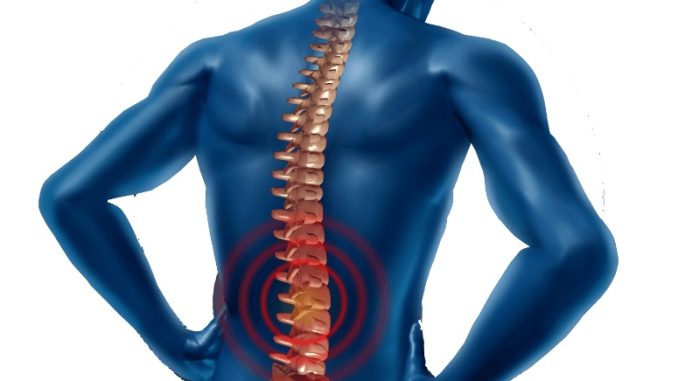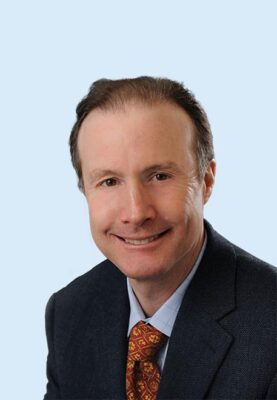
NSPC Brain & Spine Surgery (Rockville Centre), one of the largest and most respected private neurosurgical groups in the U.S., is marking Spine Health Awareness Month this October by educating patients and the public on the latest cutting-edge treatment options for back pain available today.
“Spine surgeons now have advantages that didn’t exist years ago thanks to cutting-edge, breakthrough medical technology,” explained NSPC president and attending neurosurgeon William Sonstein M.D., F.A.C.S. “Some of the new treatments NSPC neurosurgeons are turning to include endoscopic spine surgery and percutaneous discectomy. These and other advanced methods are minimally invasive and speed up recovery time, lessening recovery pain and reducing the chance of infection.”
According to the National Spine Health Foundation, a national non-for-profit responsible for developing Spine Health Awareness Month, more than 100 million Americans are impacted yearly by spine health conditions which can prevent them from leading productive and engaged lives. The most common spine health issues that can be successfully treated with new options include herniated discs, spinal stenosis, degenerative disc disease, and scoliosis.
“New medical technology has afforded us the opportunity to treat our patients in a way that wasn’t previously possible,” observed Sonstein. “Back pain sufferers shouldn’t delay treatment any longer, fearful of having major spine surgery. Many of these procedures will have patients back on their feet on the same day as the procedure and feeling relief shortly thereafter.”
Three categories of tests are used today to diagnose back pain. They include physical tests where a physician observes the patient’s range of motion and asks the patient to perform a variety of simple tasks, such as walking and standing. Imaging tests such as noninvasive x-rays and MRI exams are also used by doctors and provide high-resolution images of the inside of the body to help make a proper diagnosis. Lastly, nerve tests are used to help distinguish between possible nerve damage and muscle conditions, where a nerve damage diagnosis would require consulting with a neurosurgeon.
“While many cases of back pain result from routine daily activity that can resolve on its own, back pain that does not go away on its own can indicate a more serious underlying spinal problem,” continued Sonstein. “If this is the case, pain sufferers shouldn’t ignore the pain but seek out medical attention so that the condition doesn’t worsen over time. Conditions such as herniated or bulging discs, compressed spinal nerves, fractured vertebrae, or instability of the spine should be treated in a timely manner.”
Recently, NCPS Brain & Spine Surgery was the first medical practice in the New York area to surgically implant the breakthrough StabiLink Interlaminar Fixation System in a 71-year-old patient who had clinically symptomatic intervertebral disk disease and had failed conservative management.

According to NSPC’s Stephen Onesti M.D., F.A.C.S., the neurosurgeon who performed the procedure, “This innovative treatment option works to decompress and stabilize patients’ damaged spines with the aid of a minimally invasive, outpatient procedure rather than a more complicated, open operation. The patient was discharged from the hospital the same day as the procedure with a relatively small skin incision. I expect that thousands of back pain patients will greatly benefit from StabiLink.”
“Our goal is to provide our patients with the best possible care for their spine health issues, using the most advanced and minimally invasive techniques available,” said Sonstein. “We always start with conservative treatments, such as physical therapy, medication, and injections, and if these are not helpful, we offer minimally invasive surgery as an option.”
To avoid a visit to the doctor in the first place, NCPS suggests some simple preventative measures to reduce the possibility of developing back issues. Doing muscle-strengthening and stretching exercises at least twice a week, being mindful of correct posture, and avoiding heavy lifting can help promote back health. Maintaining a healthy weight is also an important factor in preventing spinal issues. Obesity puts unnecessary strain on back muscles and, in addition, can prolong the recovery period after an episode of back pain.
“Spine Health Awareness Month is a great time to remind people that they should take charge of their spine health to avoid long-term pain, worsening symptoms and secondary pain. Don’t let back pain hijack your life,” concludes Sonstein.
About NSPC Brain & Spine Surgery
Founded in 1958 on Long Island, NSPC Brain & Spine Surgery is one of the largest, private neurosurgical groups in the U.S. An authority and leader in breakthrough, minimally invasive brain and spine surgery, the medical group has seven offices throughout Long Island and 21 highly trained neurosurgeons. Visit www.nspc.com for more information.

